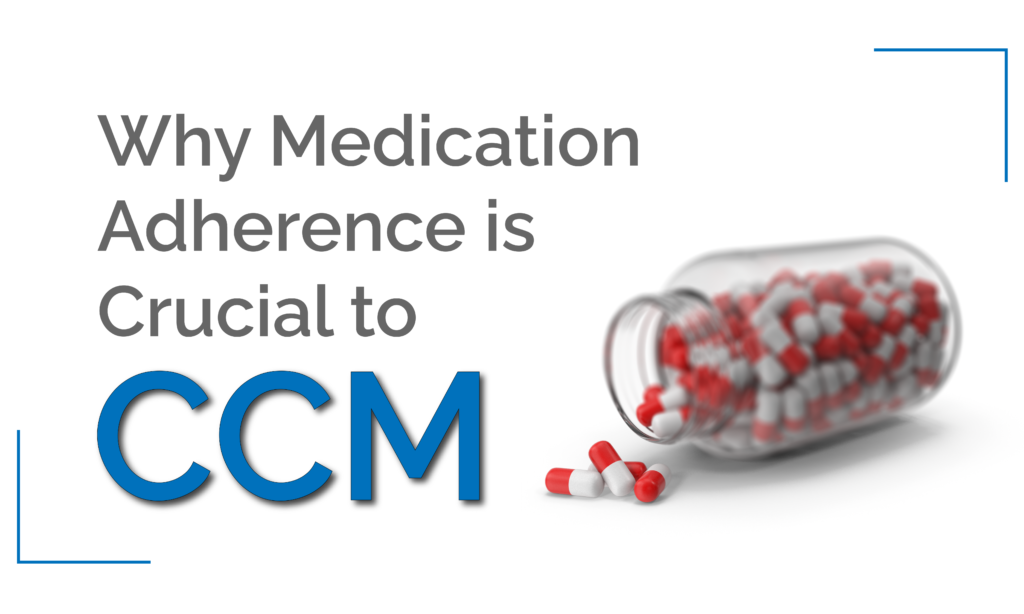Chronic Care Management (CCM) as a value-based care model is designed to mitigate the chronic disease crisis that continues to burden the U.S. healthcare system. Treatment for chronic disease has resulted in nearly $4 trillion in healthcare costs. This is why the Center for Medicare and Medicaid Services (CMS) has pushed for CCM adoption with increasing reimbursement rates to entice more physicians to participate.
CMS defines CCM as “care coordination services done outside of the regular office visit for patients with multiple chronic conditions expected to last at least 12 months or until the death of the patient, and that place the patient at significant risk of death, acute exacerbation/decompensation, or functional decline.” This care model has been associated with positive health outcomes and significant cost savings due to its close monitoring and timely intervention.
To highlight just a few benefits of Medicare’s CCM:
- ER visits reduced by 2.3% and hospitalizations decreased by 5% for enrolled patients.
- Has been effective in reducing hospitalizations for congestive heart failure, which is one of the leading causes of death in the U.S.
- Reduced costs to $75 per patient every month or $900 annually.
- Increased patient engagement and satisfaction.
Medication Adherence and CCM
There are many elements for CCM to provide continuity of care during the time in-between clinic appointments. One of the most crucial is medication adherence. Chronic care patients make up 90% of all prescriptions filled in the U.S., which is why medication reconciliation and medication management are so important in ensuring patients are following their care instructions. Medication adherence refers to whether the patients take their prescribed medications that include the right dosage and frequency. It also covers whether they continue to take a prescribed medication.
Why adherence is a problem with chronic care patients?
- Patients with serious chronic illnesses will most likely receive conflicting advice from various specialists and receive prescriptions that adversely interact with one another.
- Patients forget to take their medication due to the lack of support and education from the provider or even caregiver.
- Patients refuse to take their medications due to the complexity of the instructions, the adverse side effects, depression, or a lack of understanding due to low educational attainment.
- Patients with chronic conditions spend a great deal on prescription drugs and the cost burden becomes a barrier to medication adherence.
The Impact of Non-Adherence
Medication non-adherence is relatively common and has contributed to the chronic disease crisis as attested by a survey by the National Community Pharmacists Association on 40 and older American adults with ongoing prescribed medication. The survey found that about 28% of patients failed to refill a prescription on time, 57% skipped a dose, 22% reduced the dose, and 14% stopped altogether.
When chronic care patients fail to take their prescribed medications, this will result in frequent ER visits, hospitalizations, poor health outcomes, higher morbidity and mortality, and increased healthcare costs. Non-adherence has been associated with 100,000 preventable deaths and contributed to $100 billion in preventable medical costs per year according to an article in The Permanente Journal.
The Importance of Adherence
Medication adherence is crucial to a successful CCM program for it markedly improves clinical outcomes and prevents the loss of live. Medication management is typically part of a CCM comprehensive care plan, which is one of the primary requirements to bill for non-face-to-face services.
CMS defines a comprehensive care plan as “A person-centered, electronic care plan based on a physical, mental, cognitive, psychosocial, functional, and environmental (re)assessment, and an inventory of resources (a comprehensive plan of care for all health issues, with particular focus on the chronic conditions being managed).” Meanwhile, medication management under CCM covers the list of existing medications and allergies, review and reconciliation of adherence particularly on potential interactions, and close monitoring of patient’s self-management.
Moreover, providers can actually use their patient’s medication plan and schedule to identify patient eligibility for CCM. Meanwhile, organizations that provide CCM should be able to capture and record information that includes the patient’s medications and allergies using EHR technology.
Billing for Medication Adherence
The Medicare Learning Network CCM booklet notes, “Billing practitioners may consider identifying patients who require CCM services using criteria suggested in CPT guidance (such as number of illnesses, number of medications, or repeat admissions or emergency department visits) or the profile of typical patients in the CPT prefatory language.”
Hence, the billable 20-minute monthly calls will also cover reconciling and reviewing medications, and helping patients manage them.
Clearly, medication adherence is a key component of CCM. Here’s why:
- It optimizes patient care because care coordinators could easily identify medication discrepancies through medication reconciliation.
- It adds depth to the monthly care calls, which provides the close and regular interaction that patients need or crave. This interaction makes patients feel that their provider pays close attention to their care, especially on whether they take their medications or not.
- It supports the incentives program of CMS which requires that a dedicated member of the care team is closely monitoring the patients and keeping close tabs on their medication intake.
- It improves patient engagement and provides a timely clinical intervention that could help mitigate the medication cost pressures.
Medication adherence is crucial for CCM to work in providing optimal care and preventing exacerbations or hospitalizations, which in turn reduces healthcare costs. The patient-centered approach greatly improves beliefs and attitudes on adherence behavior. For CCM to fully deliver on its goals to resolve the chronic disease crisis, medication management needs to be strengthened and prioritized.
Ascent Care Partners (ACP) offers turnkey CCM solutions that include medication management services. Paired with Remote Patient Monitoring (RPM), ACP has helped many primary care physician practices provide the best care to their patients while ensuring their practice grows financially. At no upfront cost or capital investment needed, your practice can participate in Medicare’s reimbursement programs and bring in deserved revenues without increased overhead.



